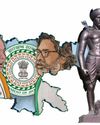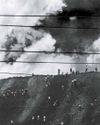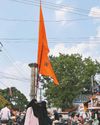The Six-Day War split and recast power centres in West Asia, shaped jehadism, consigned Palestinians to a harrowing fate and deepened Israel’s self-justificatory, racist paranoia

In 1967, no Arab leader really wanted war or was ready for it: as Israel skirmished with Syria and laid claim to all the waters of the Jordan river, Egypt’s Nasser was pressurised to live up to his image as the stalwart of Arab nationalism and confront the Jewish interloper in the region. He peremptorily got the UN observers removed from the region, closed access to the Israeli port of Eilat, and, in an inflammatory speech on May 26, declared: “Our basic objective will be to destroy Israel”.
He projected a joint assault upon Israel by three Arab states—Egypt, Syria and Jordan—whose combined armies far outnumbered those of Israel. Israel did not wait for the attack: it launched a pre-emptive strike on June 5 that destroyed the air forces of the enemy states on the ground and then, with full mastery of the skies, wreaked havoc upon the ground troops.
Today, we know how ill-prepared the Arabs were for war: there was, as Eugene Rogan has noted, no war planning or coordination, no joint strategy, and serious technical errors were made during the fighting that compounded Arab losses. Nasser truly believed that, for all his sabre-rattling, there would be no war as the US would intervene to negotiate a peace agreement, enabling him to declare victory, as had happened in 1956.
Bu hikaye Outlook dergisinin November 06, 2017 sayısından alınmıştır.
Start your 7-day Magzter GOLD free trial to access thousands of curated premium stories, and 9,000+ magazines and newspapers.
Already a subscriber ? Giriş Yap
Bu hikaye Outlook dergisinin November 06, 2017 sayısından alınmıştır.
Start your 7-day Magzter GOLD free trial to access thousands of curated premium stories, and 9,000+ magazines and newspapers.
Already a subscriber? Giriş Yap

Trump's White House 'Waapsi'
Donald Trump's victory in the US presidential election may very well mean an end to democracy in the near future

IMT Ghaziabad hosted its Annual Convocation Ceremony for the Class of 2024
Shri Suresh Narayanan, Chairman Managing Director of Nestlé India Limited, congratulated and motivated graduates at IMT Ghaziabad's Convocation 2024

Identity and 'Infiltrators'
The Jharkhand Assembly election has emerged as a high-stakes political contest, with the battle for power intensifying between key players in the state.

Beyond Deadlines
Bibek Debroy could engage with even those who were not aligned with his politics or economics

Portraying Absence
Exhibits at a group art show in Kolkata examine existence in the absence

Of Rivers, Jungles and Mountains
In Adivasi poetry, everything breathes, everything is alive and nothing is inferior to humans

Hemant Versus Himanta
Himanta Biswa Sarma brings his hate bandwagon to Jharkhand to rattle Hemant Soren’s tribal identity politics

A Smouldering Wasteland
As Jharkhand goes to the polls, people living in and around Jharia coalfield have just one request for the administration—a life free from smoke, fear and danger for their children

Search for a Narrative
By demanding a separate Sarna Code for the tribals, Hemant Soren has offered the larger issue of tribal identity before the voters

The Historic Bonhomie
While the BJP Is trying to invoke the trope of Bangladeshi infiltrators”, the ground reality paints a different picture pertaining to the historical significance of Muslim-Adivasi camaraderie